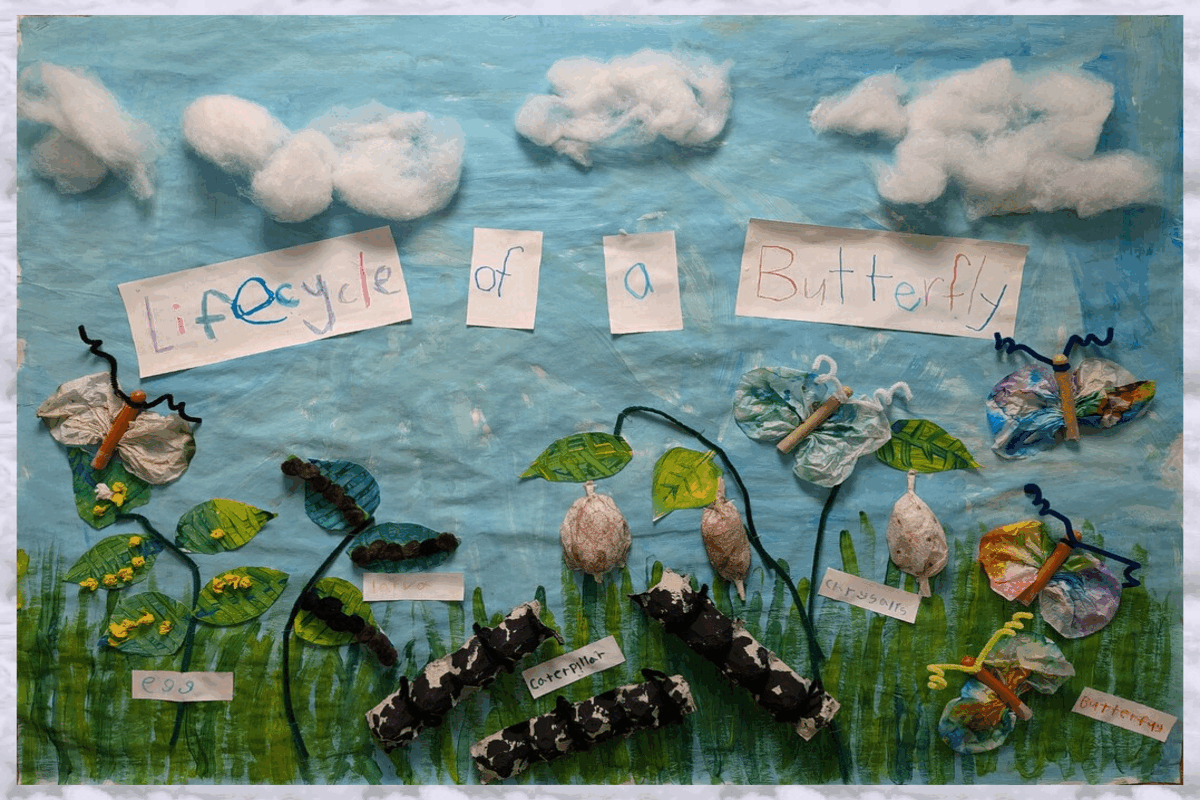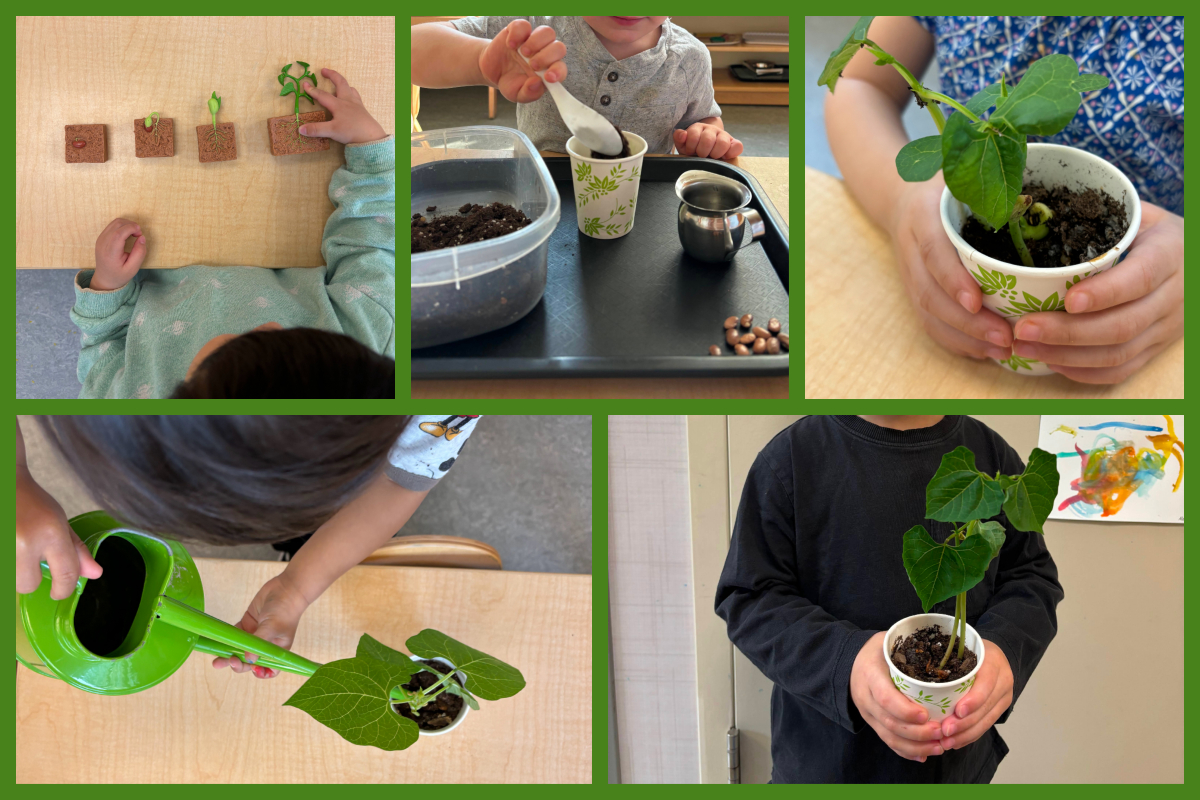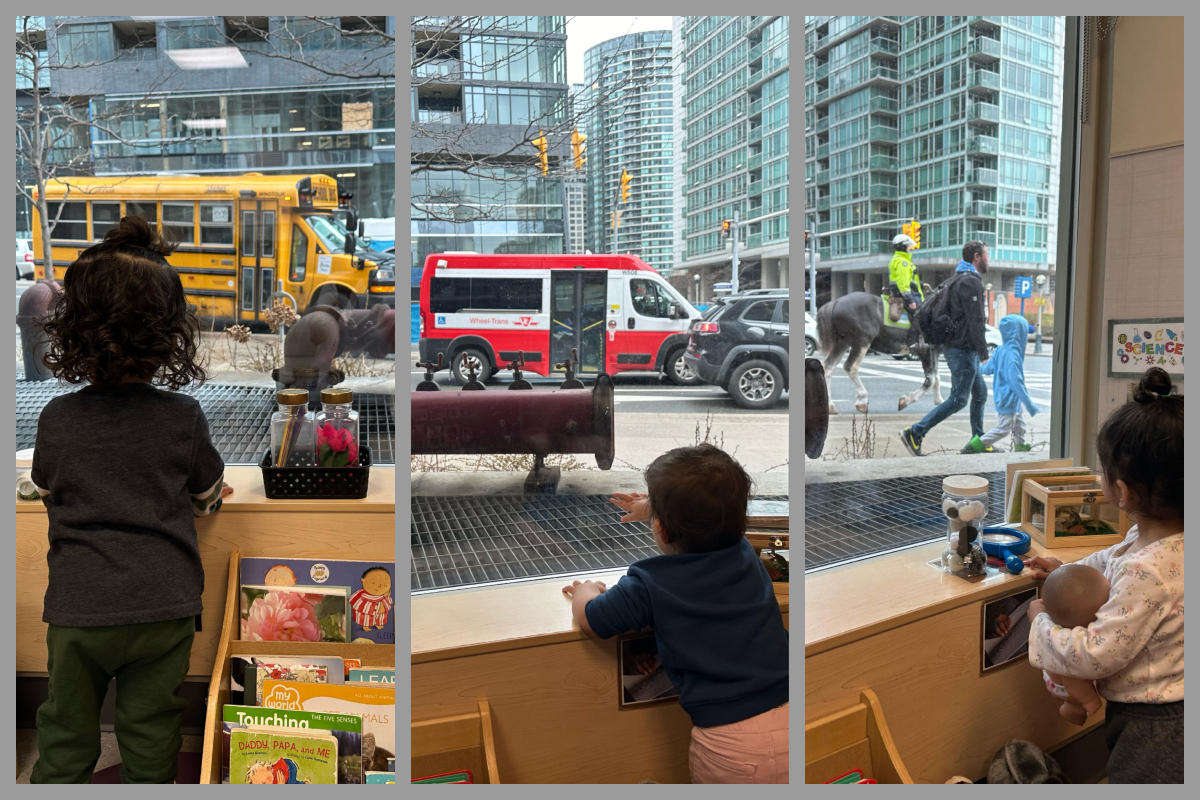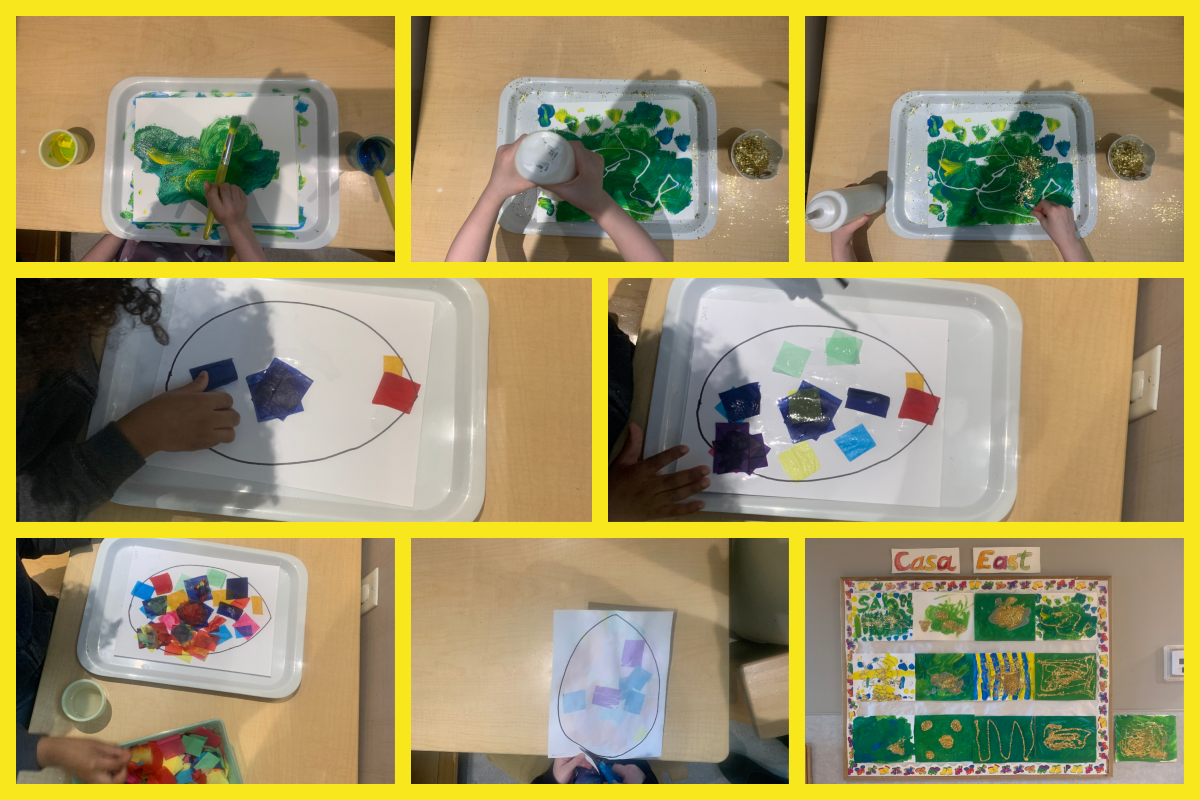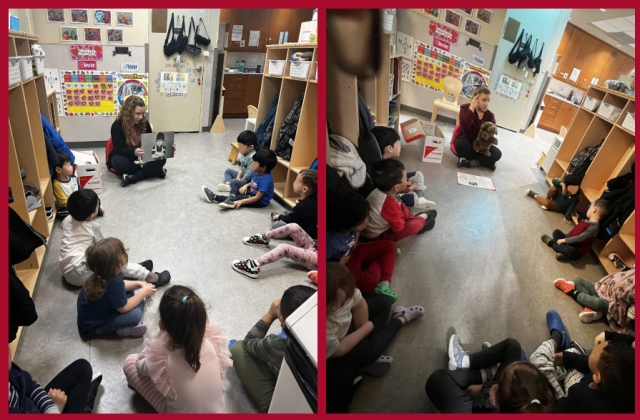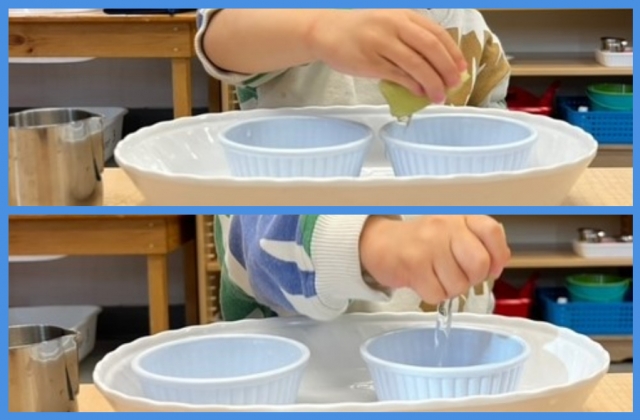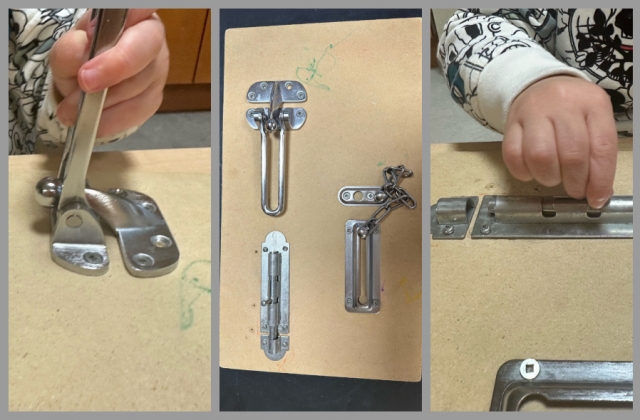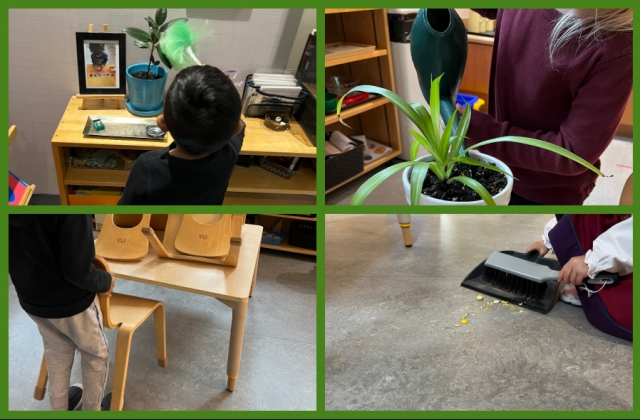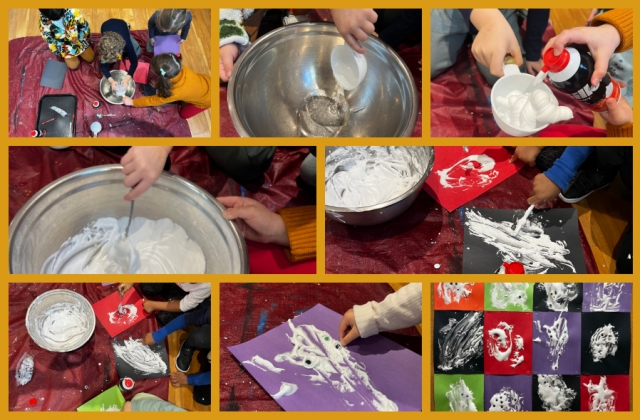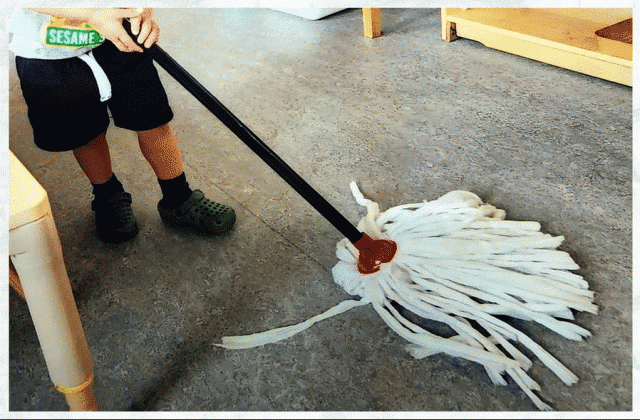Butterfly Life Cycle Process
The children learned about the metamorphosis of a butterfly from an egg, larva, chrysalis, and finally a butterfly as each stage progressed through days and weeks. We created an art display depicting the life cycle of a butterfly integrating botany and various materials around our classroom. Please click for more information and to watch the video collage of our process!
View
